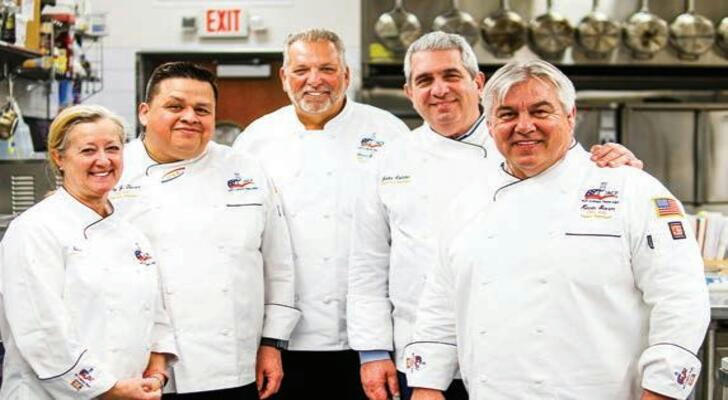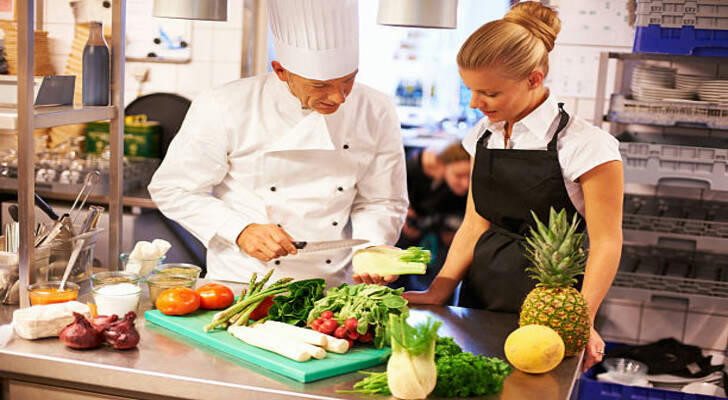The Certified Culinarian Assistant (CCA): Building Foundations for Culinary Excellence
The Certified Culinarian Assistant (CCA) credential, recognized globally as a benchmark for entry-level culinary proficiency, equips aspiring chefs with essential skills to thrive in professional kitchens. Accredited by institutions like the American Culinary Federation (ACF), this certification validates competencies in food safety, knife skills, and foundational cooking techniques, ensuring graduates meet industry standards. Unlike generic culinary programs, CCA training emphasizes hands-on practice and theoretical knowledge, bridging the gap between culinary education and real-world kitchen demands. Its rigorous curriculum prepares candidates for diverse roles, from line cooks to sous chefs, while fostering adaptability in fast-paced environments.

Core Components of CCA Training Programs
CCA certification programs are structured to cultivate expertise across three pillars:
Technical Mastery
- Knife Skills: Precision in cutting techniques (e.g., julienne, chiffonade) and safety protocols, often practiced through repetitive drills and timed assessments.
- Cooking Fundamentals: Mastery of techniques such as sautéing, braising, and roasting, with an emphasis on consistency and flavor balance.
- Food Safety and Sanitation: In-depth training on HACCP principles, cross-contamination prevention, and temperature control, critical for maintaining kitchen hygiene.
Theoretical Knowledge
- Nutrition and Menu Planning: Courses cover dietary guidelines, cost-effective ingredient sourcing, and designing balanced menus for diverse dietary needs.
- Kitchen Management: Modules on inventory control, waste reduction, and workflow optimization to enhance operational efficiency.
Practical Application
- Simulated Kitchen Environments: Trainees participate in timed cooking challenges, replicating real-world pressure, such as preparing a three-course meal under evaluator scrutiny.
- Industry Internships: Partnerships with restaurants and hotels provide hands-on experience, allowing students to apply skills in professional settings.
Certification Process: Rigor and Evaluation
Earning the CCA credential involves a multi-stage evaluation designed to assess both competence and professionalism:

- Written Examinations
- Tests on food safety regulations, nutrition fundamentals, and culinary terminology, often structured as multiple-choice or scenario-based questions.
- Practical Assessments
- Candidates must demonstrate proficiency in core techniques, such as fabricating proteins or executing a mise en place within strict time limits.
- Portfolio Submission
- Documentation of completed recipes, internship logs, and reflective journals showcasing problem-solving abilities in kitchen scenarios.
This holistic approach ensures graduates are not only skilled but also adaptable to evolving culinary trends.
Career Pathways for CCA Graduates
The certification unlocks diverse opportunities across the culinary landscape:
- Restaurant Kitchens: Graduates often start as line cooks or prep chefs in establishments ranging from casual diners to Michelin-starred venues.
- Hospitality Sector: Resorts, cruise lines, and hotels prioritize CCA-certified staff for their adherence to quality and efficiency in high-volume settings.
- Culinary Entrepreneurship: With foundational skills validated, many launch food trucks, catering services, or boutique bakeries, leveraging certification credibility to attract clients.
Additionally, the credential is a stepping stone for advanced certifications, such as Certified Sous Chef (CSC) or Certified Executive Chef (CEC), fostering long-term career growth.

Ethical and Sustainable Practices in CCA Training
Modern CCA programs integrate sustainability and ethical sourcing into their curricula:
- Farm-to-Table Principles: Trainees learn to prioritize local, seasonal ingredients, reducing carbon footprints while supporting community agriculture.
- Zero-Waste Techniques: Courses teach creative utilization of food scraps, such as transforming vegetable peels into stocks or fermenting leftovers.
- Cultural Sensitivity: Exposure to global cuisines and traditional cooking methods fosters respect for diverse culinary traditions, from French haute cuisine to Asian street food.
Continuing Education and Professional Development
The culinary industry's dynamic nature demands lifelong learning. CCA graduates benefit from:
- Workshops and Masterclasses: Institutions like the Culinary Institute of America (CIA) offer advanced modules on molecular gastronomy, pastry arts, or beverage pairing.
- Networking Opportunities: Membership in organizations like ACF provides access to industry events, mentorship programs, and job boards.
- Digital Learning Platforms: Hybrid programs allow professionals to update skills in food science or kitchen technology without interrupting their careers.
Conclusion
The Certified Culinarian Assistant (CCA) certification is more than a credential—it is a commitment to culinary craftsmanship and professional growth. By blending technical rigor, ethical practices, and adaptability, CCA graduates are poised to shape the future of gastronomy, whether in bustling restaurant kitchens or innovative culinary ventures. For those beginning their journey, this certification lays the groundwork for a resilient and rewarding career in an ever-evolving industry.
References integrated from industry sources.
